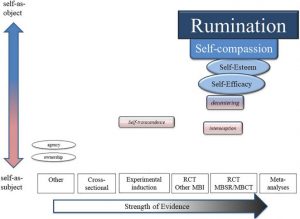
Reduce Burnout and Increase Resilience in Healthcare Workers with Mindfulness
By John M. de Castro, Ph.D.
“Mindfulness practices and perspectives are profoundly beneficial at all levels of healthcare—from the personal to the professional to the patients.” – Mindful
Stress is epidemic in the western workplace with almost two thirds of workers reporting high levels of stress at work. In high stress occupations, like healthcare, burnout is all too prevalent. Burnout is the fatigue, cynicism, emotional exhaustion, sleep disruption, and professional inefficacy that comes with work-related stress. It is estimated that over 45% of healthcare workers experience burnout. It not only affects the healthcare providers personally, but also the patients, as it produces a loss of empathy and compassion. Burnout, in fact, it is a threat to the entire healthcare system. Currently, over a third of healthcare workers report that they are looking for a new job. Hence, burnout contributes to the shortage of doctors and nurses.
Preventing burnout has to be a priority. Unfortunately, it is beyond the ability of the individual to change the environment to reduce stress and prevent burnout. So, it is important that methods be found to reduce the individual’s responses to stress; to make the individual more resilient when high levels of stress occur. Contemplative practices have been shown to reduce the psychological and physiological responses to stress and improve well-being. Indeed, mindfulness has been shown to be helpful in treating and preventing burnout, increasing resilience, and improving sleep.
In today’s Research News article “A Novel Mindful-Compassion Art-Based Therapy for Reducing Burnout and Promoting Resilience Among Healthcare Workers: Findings From a Waitlist Randomized Control Trial.” (See summary below or view the full text of the study at: https://www.frontiersin.org/articles/10.3389/fpsyg.2021.744443/full?utm_source=F-AAE&utm_medium=EMLF&utm_campaign=MRK_1765474_a0P58000000G0YfEAK_Psycho_20211102_arts_A ) Ho and colleagues recruited frontline healthcare workers and randomly assigned them to either a wait-list control condition or to receive 6 weekly 3-hour sessions of Mindful-Compassion Art-based Therapy (MCAT). The treatment included meditation, lectures, and art therapy that was aimed at training “understanding, acceptance, and compassion for self and others to cultivate psychological resilience and shared meaning”. The participants were measured before and after training and 6 weeks later for mindfulness, burnout, resilience, emotion regulation, self-compassion, death attitude, and quality of life. Transcripts of group sharing sessions and artwork produced were also analyzed.
They found that in comparison to baseline and the wait-list control group after Mindful-Compassion Art-Based Therapy (MCAT) there were significant increases in emotion regulation, non-reactivity to intrusive thoughts, acceptance of death and significant reduction in mental exhaustion. At the 6-week follow-up, they found that the improvements in emotion regulation and mental exhaustion were maintained and the MCAT group also showed significant increases in mindfulness, self-compassion, interconnectedness to others, and quality of life. Analysis of the group discussions and artwork revealed that the training worked by reducing burnout, building resilience, nurturing compassion, and fostering collegial support among healthcare workers.
These results are encouraging and suggest that the mindfulness-based therapy was effective in improving the psychological health and well-being and reducing burnout of healthcare workers. Prior research by others reinforce these findings as it has been shown that mindfulness training produces increases in emotion regulation, self-compassion, interconnectedness, resilience, acceptance of death. and quality of life and reductions in burnout. Hence, the present findings along with previous research suggest that mindfulness training improves the psychological health and well-being of healthcare workers making them more resistant to professional fatigue and burnout. This suggests that mindfulness training should be recommended for frontline healthcare workers.
So, reduce burnout and increase resilience in healthcare workers with mindfulness.
“mindfulness-based stress reduction was associated with significant improvements in burnout scores and mental well-being for a broad range of healthcare providers.” – Matthew Goodman
CMCS – Center for Mindfulness and Contemplative Studies
This and other Contemplative Studies posts are also available on Google+ https://plus.google.com/106784388191201299496/posts and on Twitter @MindfulResearch
Study Summary
Ho AHY, Tan-Ho G, Ngo TA, Ong G, Chong PH, Dignadice D and Potash J (2021) A Novel Mindful-Compassion Art-Based Therapy for Reducing Burnout and Promoting Resilience Among Healthcare Workers: Findings From a Waitlist Randomized Control Trial. Front. Psychol. 12:744443. doi: 10.3389/fpsyg.2021.744443
Protecting the mental health of healthcare workers is an urgent global public health priority. Healthcare workers, especially those immersed in palliative care, are prone to burnout due to the intense emotions associated with end-of-life caregiving. This study examines the efficacy of a novel, multimodal, and group-based Mindful-Compassion Art-based Therapy (MCAT) that integrates reflective self-awareness with creative emotional expression for protecting healthcare workers’ mental health. A dual-arm open-label waitlist randomized controlled trial was conducted. A total of 56 healthcare workers were recruited from the largest homecare hospice in Singapore and randomized to the immediate-treatment condition of a standardized 6-week, 18-hours MCAT intervention (n=29), or the waitlist-control condition (n=27). Self-administered outcome measures on burnout, resilience, emotional regulation, self-compassion, death attitudes, and quality of life were collected at baseline, post-intervention/second-baseline at 6weeks, and follow-up/post-intervention at 12weeks. Results from mixed model ANOVAs reveal that treatment group participants experienced significant reduction in mental exhaustion, as well as significant improvements in overall emotional regulation, nonreactivity to intrusive thoughts, approach acceptance of death, and afterlife belief as compared to waitlist-control immediately after MCAT completion. Effect sizes of these impacts ranged from medium to large (η2=0.65 to 0.170). Results from one-way ANOVAs further reveal that the treatment gains of reduced mental exhaustion and increased emotional regulation were maintained among treatment group participants at 12-weeks follow-up compared to baseline, with new benefits identified. These include increased ability to observe and describe one’s experiences, elevated overall self-compassion, greater mindful awareness, enhanced common humanity, and better quality of life. Effect sizes of these impacts were large (η2=0.128 to 0.298). These findings reflect the robust effectiveness and positive residual effects of MCAT for reducing burnout, building resilience, nurturing compassion, fostering collegial support, and promoting mental wellness among healthcare workers. The clinical model and applicability of MCAT in larger and more diverse caregiving contexts, such as family dementia care, are discussed.
https://www.frontiersin.org/articles/10.3389/fpsyg.2021.744443/full?utm_source=F-AAE&utm_medium=EMLF&utm_campaign=MRK_1765474_a0P58000000G0YfEAK_Psycho_20211102_arts_A









